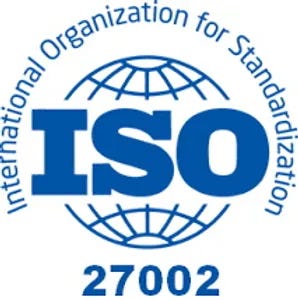In today’s dynamic business environment, outsourcing has become more than just a method to reduce costs—it’s a strategic tool that can unlock hidden value across industries. While the traditional narrative of outsourcing focuses on labor cost reductions, there are many other benefits that can significantly impact a company’s bottom line. Let’s explore some of these often-overlooked advantages and how they play out across different sectors.
- Unlocking Agility and Innovation
In industries like healthcare and telecommunications, the ability to rapidly adapt to changing conditions is crucial. Outsourcing non-core functions can dramatically increase an organization’s agility, enabling quicker pivots in response to market shifts or unexpected challenges. For example, during the recent pandemic, many healthcare providers who had outsourced their revenue cycle management could swiftly adjust to fluctuating patient volumes and evolving regulations. This flexibility allowed them to maintain operations and focus on patient care without the added burden of scaling administrative functions in-house.
Similarly, in telecommunications, companies that outsource customer service operations can quickly scale up or down based on demand. This agility not only helps manage costs more effectively but also positions these companies to innovate and respond to customer needs more rapidly.
- Enhancing Core Competencies
One of the less discussed benefits of outsourcing is how it allows organizations to refocus their efforts on core competencies. By offloading administrative or support functions, companies can direct more resources toward what they do best. In the government sector, for instance, outsourcing IT management or data processing allows internal teams to concentrate on policy development and public service improvements.
In the financial services industry, outsourcing back-office operations such as data entry or compliance monitoring frees up internal resources to focus on developing new financial products or expanding into new markets. This strategic refocus can lead to innovation and growth, providing a competitive advantage that extends beyond simple cost savings.
- Scalability Without the Risk
Scalability is a significant advantage of outsourcing, particularly in industries with seasonal or fluctuating demand, like retail and financial services. Rather than investing in permanent infrastructure or staff that may only be needed during peak periods, outsourcing allows companies to scale their operations seamlessly.
For example, during tax season, financial services firms often face a surge in customer inquiries. Outsourcing customer support during these peak times enables these companies to meet demand without the risks associated with hiring temporary staff or investing in additional infrastructure that may go unused during off-peak periods. This scalable model ensures that costs are closely aligned with revenue-generating activities, optimizing profitability.
- Improving Quality and Reducing Errors
Outsourcing to specialized providers often results in higher quality outputs and fewer errors. This is particularly important in industries where accuracy and compliance are critical, such as healthcare and government services. By leveraging the expertise of outsourcing partners, companies can improve the quality of their services while reducing the costs associated with errors and rework.
In healthcare, for example, outsourcing medical coding and billing to experts can significantly reduce the rate of claim denials, leading to faster reimbursements and improved cash flow. In the government sector, outsourcing data management can enhance the accuracy of citizen records, reducing complaints and increasing public trust.
- The Hidden Costs of Vendor Management
While outsourcing offers many benefits, it’s essential to consider the hidden costs associated with managing vendor relationships. Effective vendor management requires time and resources to ensure that the outsourcing arrangement aligns with the organization’s goals and delivers the expected value.
In industries like healthcare, where compliance and quality are paramount, managing these relationships effectively is crucial. Organizations must factor in the costs of vendor oversight, contract management, and performance monitoring when evaluating the total cost of outsourcing. However, when done correctly, these efforts can lead to stronger partnerships and better outcomes, ultimately enhancing the overall return on investment (ROI).
- Supporting Sustainability and CSR Goals
In an era where sustainability and corporate social responsibility (CSR) are increasingly important, outsourcing can play a key role in achieving these goals. By choosing outsourcing partners that prioritize sustainable practices and ethical labor standards, companies can enhance their brand reputation and build trust with consumers.
For example, in the healthcare industry, outsourcing to providers that use green technologies can help organizations reduce their environmental footprint. In the telecommunications sector, outsourcing to partners with strong CSR policies can improve brand perception and customer loyalty, translating into long-term financial benefits.
- Risk Mitigation and Business Continuity
Risk management is a critical consideration in industries like healthcare and government services, where the stakes are high. Outsourcing can help mitigate risks by spreading operational responsibilities across multiple entities, reducing the impact of disruptions or crises.
For instance, healthcare organizations that outsource revenue cycle management or IT services can ensure business continuity even during emergencies, such as natural disasters or cyberattacks. By partnering with outsourcing providers that have robust disaster recovery plans, these organizations can protect their operations and revenue streams, ensuring long-term stability and resilience.
Conclusion: A Strategic Approach to Outsourcing
Outsourcing is no longer just a cost-saving measure—it’s a strategic decision that can drive value across multiple dimensions of an organization. Whether it’s enhancing agility, improving quality, supporting sustainability goals, or mitigating risks, the benefits of outsourcing extend far beyond reducing expenses.
For companies in industries like healthcare, telecommunications, government services, and financial services, outsourcing offers a pathway to not only optimize operations but also to achieve strategic objectives that contribute to long-term success. By taking a holistic view of outsourcing and considering factors beyond immediate cost savings, organizations can unlock hidden value and position themselves for growth in an increasingly competitive landscape.
If you’re considering outsourcing as part of your strategy, it’s essential to evaluate all aspects of the decision—from vendor management to scalability—ensuring that your organization can reap the full benefits and drive meaningful ROI.












